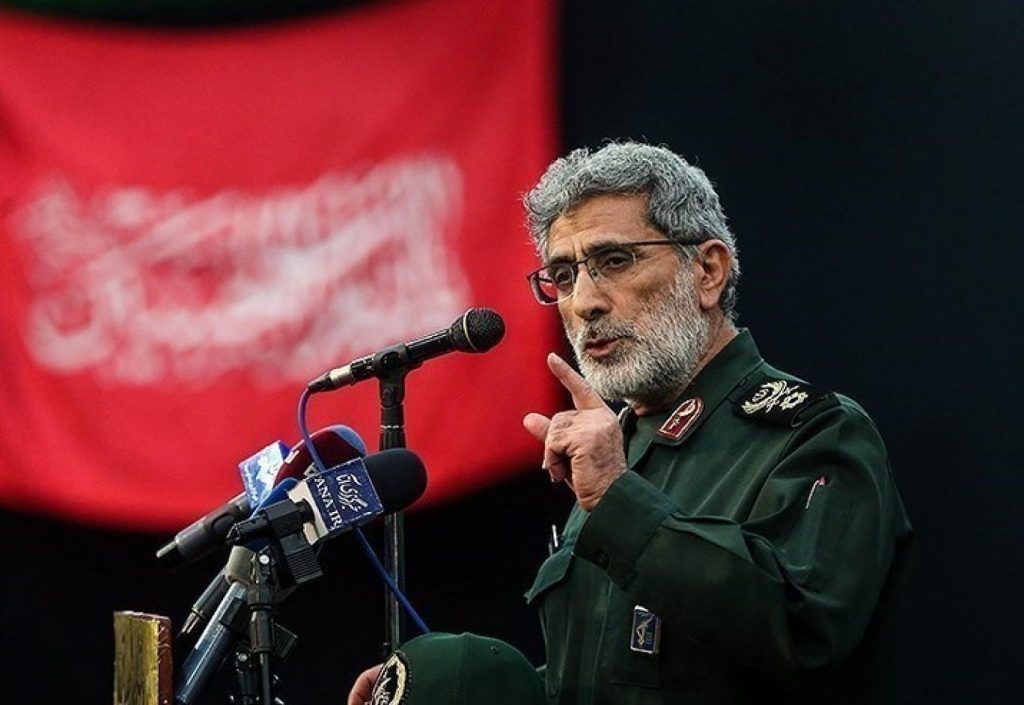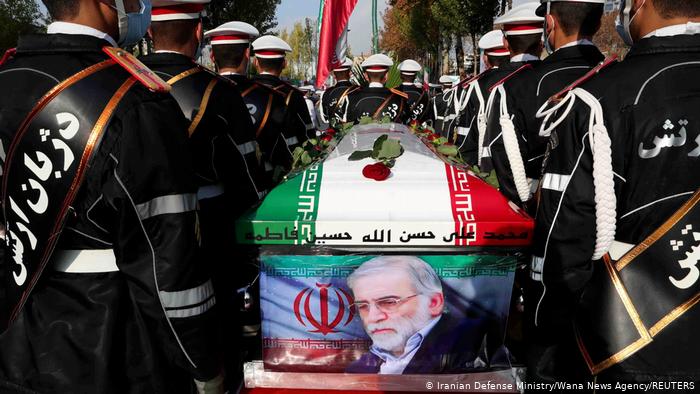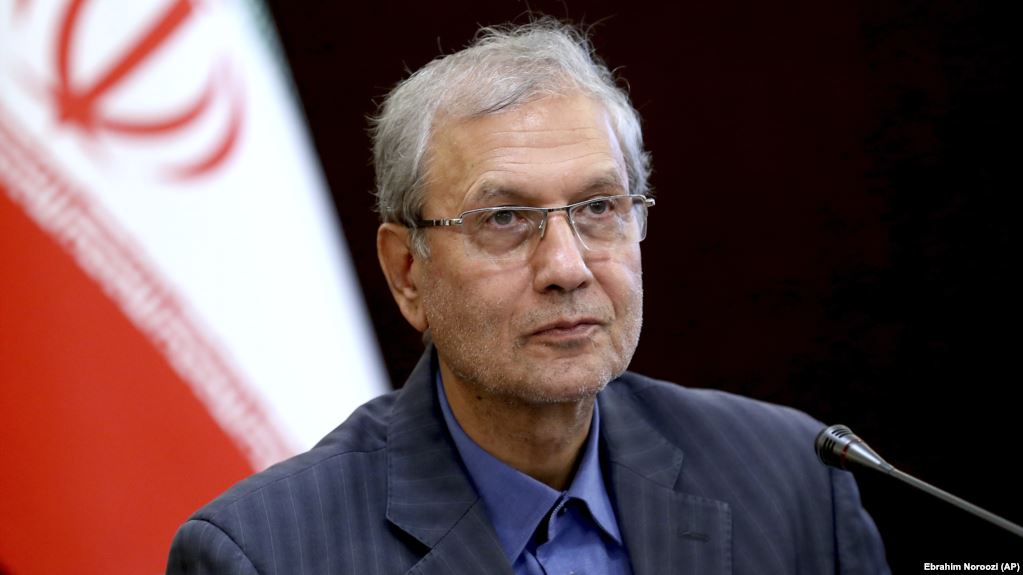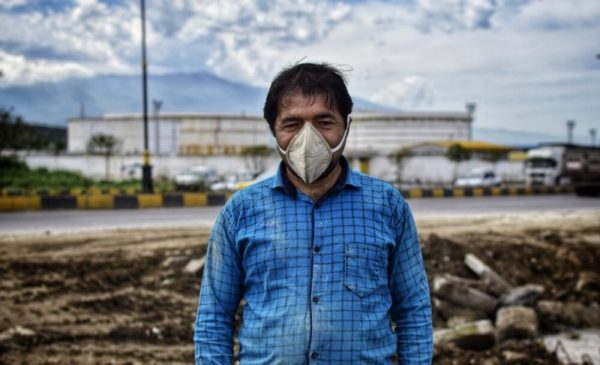
Why Aren’t Entities Held Accountable?
Following the killing of Iran’s top nuclear scientist Mohsen Fakhrizadeh, the editorial of Arman Melli asks why no entity is held accountable in this regard.
Fakhrizadeh wasn’t an ordinary person. He was under sanctions by the UN Security Council, which means he was quite well-known. Israeli Prime Minister Benjamin Netanyahu had mentioned his name, urging that it should not be forgotten, which shows that Fakhrizadeh was on top of the list of targets of those who are against nuclear progress in Iran.
On the other hand, four other nuclear scientists were assassinated in recent years, which indicates that Fakhrizadeh too was within reach. But now that this incident has happened, the question is: why weren’t the necessary measures taken to prevent it? Chanting security slogans is of no use. Shouldn’t someone like Fakhrizadeh have moved around in a bullet-proof vehicle on a secured path? What were the breaches within Iran’s security entities?
We cannot tell the enemies to stop their enmity, but domestic organizations and entities must be held accountable. Who is to be held accountable for the failings within the country in this regard? What happened to the case of the killing of Qassem Soleimani? Who gave them the intelligence as to his whereabout? Shouldn’t anyone be held accountable?
Fakhrizadeh was so important that Netanyahu had said his name. What else was needed to be explicitly said to give him security protection? Who is in charge of the security of these people?
There are two issues here: first, when it was clear that the Israelis were after Fakhrizadeh, shouldn’t he have had a security team? Second, what happened to the assassination cases of the other scientists? Why haven’t they been able to identify the security breaches up to now?
Iran was proud of its security in the Middle East; now they are assassinating the country’s scientists in broad daylight in an area close to Tehran.
People Await Small Loans
The editorial of Tejarat penned by Ali Rezaee, a member of the Iranian Parliament’s Economic Commission, criticizes the government and the Central Bank of Iran (CBI) for not creating the necessary facilities for those applying for small loans from banks.
At different junctures, people need small amounts of cash, making them resort to anything including small loans from banks. But we are witnessing restrictive measures in this regard, making it difficult to apply for and obtain such loans.
The bitter truth is that private banks will not give small loans with low interest rates to people; if along with public banks, private banks also grant small loans to people, this will ease people’s problems.
Despite the fact that the CBI’s directives urge facilitating small loans like marriage loans, the banks do not follow these directives. The standard procedure for granting loans creates many obstacles for young people who want to start their married lives. So, it is necessary for the government and the CBI to take the necessary steps in this regard. The other important issue is that people face problems in buying residential units, which is why they are in need of bank loans to buy residential units.
We must admit that the CBI’s decisions are not necessarily implemented with regard to granting small loans, which is why applicants face a lot of difficulty in obtaining small loans.
How Much Longer Will the CBI’s Wrong Forex Policies Continue?
The editorial of Aftab Yazd argues that an increase in forex prices will irreparably damage Iran’s economy.
The forex rate is one of the key factors in the economy which impacts other issues including imports and exports, the entry and exit of capital from the country, investment, economic growth, households’ welfare, production costs, and inflation forecasts.
During the past two years, the price of the dollar soared from 3,500 tomans to about 30,000 tomans, which represents an increase of 800 percent during this period. But meanwhile, the country’s liquidity shows an 80 percent increase, which indicates that there is no consistency between liquidity growth and the increase in the forex price.
Now the question is: how will the management of the forex market impact the macro-economy? What are the advantages and disadvantages of an increase in the forex rate? Has the CBI been successful in fulfilling its role which is controlling and managing the value of the national currency? And more importantly, why is the CBI not willing to decrease the forex rate?
Economic experts hold that a high forex rate has two main advantages: 1) a high forex rate will increase non-oil exports; 2) with a high forex rate, the government will make gains from selling it, compensating for its budget deficit.
Nonetheless, the adverse effects of an increase in the forex price are devastating, as follows:
1) With an increase in the forex rate, the cost of imports and intermediate goods will go up, resulting in a slowdown or halt in domestic production.
2) It will increase the cost of production, including wages, and will result in high prices and inflation.
3) People will incline towards using the forex price to calculate other prices.
4) People’s purchase power will shrink.
5) An increase in the forex price will destabilize the macro-economy and increase inflation expectations.
6) After creating inflation, an increase in the forex price will create a deep recession in Iran’s economy.
7) It will result in decreasing investment, making people turn to dealership and non-productive activities.
8) It will eventually worsen the distribution of incomes, tipping the balance more in favor of the rich. In other words, the poor will become poorer; the rich will become richer.
As can be seen, the disadvantages of an increase in the forex price are not comparable with its advantages, and as the depreciation of the national currency continues, Iran’s economy will have to face a five-year period of inflationary recession.
Why Has Any Improvement in the Iran-US Relationship Become so Difficult?
The editorial of Setareh Sobh argues that the road ahead of the Iran-US relationship is bumpy, mostly because of the Iranian “hardliners’” efforts to discredit the nuclear deal.
Donald Trump is gradually accepting defeat. Meanwhile, Joe Biden has introduced some of his main cabinet members, including Antony Blinken as secretary of state and Jake Sullivan as national security adviser who are quite familiar with Iranian diplomats, especially Foreign Minister Mohammad Javad Zarif, and were involved in the nuclear deal negotiations during the Obama administration.
These and other choices by the US president-elect promise a new – but different – season ahead for the Iranian diplomatic apparatus. This opportunity can be used to ease the pressure of US sanctions from which people are greatly suffering.
But taking any measures in this direction has become very difficult. That is because some officials openly rebuff the revival of the nuclear deal. The approach of the US Democrats towards Iran is different from the Republican approach as it does not necessarily follow the policy of maximum pressure against Iran. However, it is not clear why hardline “principlists” and their media platforms still denounce the revival of the nuclear deal. Why aren’t they ratifying the FATF bills which will create financial openings between Iranian and international banks?
“Hardliners” in Iran and their efforts to take over the executive branch in 2021 can push the future US administration further towards the policies of Trump and his regional allies, which makes the revival of the nuclear deal by Rouhani and Zarif impossible.
It must also be noted that the US Treasury has tied the sanctions against Iran to the issue of terrorism and human rights, which makes it more difficult for Joe Biden and his team to lift these sanctions.
Some “hardliners” use their positions and platforms to attack those who are stating that the change in the US administration will be advantageous for the Iranian people, calling them “ignorant,” “idiots,” “traitors,” and “businessmen of negotiations.”

Quds Force Commander: Our Scientist Was Targeted With American Bullets

Following the killing of Qassem Soleimani by American forces in Iraq, Iranian officials routinely employed the expression “harsh vengeance.” Now after assassination of Iran’s top nuclear scientist Mohsen Fakhrizadeh, once again the expression has been repeated, mostly by military forces.
In a statement issued by Quds Force Commander Esmail Ghaani regarding the killing of Fakhrizadeh, he wrote: “With all forces defending the Islamic nation, we vow to avenge the killing of this dear martyr and all other martyrs.”
The statement emphasized that “this scientist” was “targeted with American bullets.”
IRGC Chief Commander Hossein Salami also issued a statement in reaction to the assassination of Fakhrizadeh, stressing on taking revenge by IRGC forces using all “allied forces” with Iran.
While the IRGC chief commander talks of avenging Fakhrizadeh’s assassination with Iran’s allies, Ghaani had reportedly gone to Iraq and met with Iran-backed Shia militia groups, asking them to avoid any conflict with American forces until US President Donald Trump’s term expires.
Other Iranian officials have also promised to take revenge for this assassination. Iranian President Hassan Rouhani said Iran will avenge the killing of this nuclear scientist, but added that “the Islamic Republic will not walk into Israel’s trap.”
Iranian Supreme Leader Ali Khamenei sent a message calling for punishing those who ordered and carried out the assassination of Fakhrizadeh.
Mohsen Fakhrizadeh, a former IRGC commander, was one of the senior and key managers in Iran’s nuclear and missile program. Some foreign media have called him “the mysterious man” of Iran’s nuclear activities. His name was on the list of sanctions of the UN Security Council.
The Mystery of the Killing of Fakhrizadeh and the Humiliation of the Security Apparatus

Days after Iranian top nuclear scientist Mohsen Fakhrizadeh was killed in a location close to Tehran, no thorough, exact narrative about how he was killed has been given by the officials and the media affiliated with the IRGC as yet.
The only entity which has so far issued a statement in this regard has been the Intelligence Ministry. In its statement, the ministry says that it has found “some clues about the perpetrators of the attack,” adding “more information” will be announced later.
Ali Shamkhani, secretary to Iran’s Supreme National Security Council, told reporters that Fakhrizadeh was killed in a “very complicated” operation, stressing “we know who is behind it.”
Conflicting stories have been reported as to the nature of the operation. IRGC-affiliated Fars new agency first said that “the shooters were present on the scene in the ambush.” But in its latest report, it urges that “in this operation which took three minutes, no human agent was present on the scene, and the shootings were carried out by an automatic machine gun, remotely controlled.”
A documentary film maker close to the IRGC claimed there were “12 assassins” present on the scene, adding that the “area power was cut off half an hour before the operation, and all cameras were off, so no footage has been recorded.”
In recent years, several terrorist attacks and sabotage operations have happened within Iran. Two years ago, Iran’s confidential nuclear documents were stolen by Israeli Mossad from a site within Iran.
A few months ago, there was an explosion at the nuclear site in Natanz as a result of sabotage. Later, there was an explosion at missile facilities close to Tehran for the same reason. Several nuclear scientists have also been assassinated in recent years.
As a result, experts believe that Iran’s security apparatus has been deeply “humiliated,” particularly by the Israelis.
On the other hand, there have been factional disagreements over this issue in Iran – some blaming the government, the nuclear negotiation team, and the Intelligence Ministry; others blaming the IRGC.
Parliament Votes for Increasing Uranium Enrichment and Exiting the NPT

The plan called the “strategic measures for lifting sanctions” was ratified by the Iranian Parliament. According to this plan, uranium enrichment must increase up to 2 percent, and if sanctions are not lifted, the implementation of the Additional Protocol must be stopped.
According to this plan which was ratified partly in reaction to the assassination of Iran’s top nuclear scientist Mohsen Fakhrizadeh, it is incumbent upon the Atomic Energy Organization of Iran to produce at least 120 kilograms of 20 percent enriched uranium at the Fordow facilities and stockpile it within the country. Furthermore, three months after the ratification of the plan, if Iran’s banking relations with Europe are not restored and Iran’s oil purchases do not return to the normal level, then it is incumbent upon the government to stop implementing the Additional Protocol.
The overwhelming majority of lawmakers who talked in defense of the plan emphasized that it aims at confronting US sanctions and changing the behavior of the West. The spokesperson of the Parliament’s National Security Commission said: “The enemies must know that their behavior will have consequences.” Referring to the killing of Mohsen Fakhrizadeh, he added: “They must also know that assassinating our scientists will entail a cost for them; they shouldn’t think that if they take terrorist measures, such behavior will go without any response.”
Other lawmakers used this opportunity to talk against the nuclear deal (JCPOA). The MP for Ghaemshahr said: “In the nuclear deal, the problems relating to banking, oil exports, business, and the country’s water shortage were supposed to be resolved, but no such thing happened. They even said that the JCPOA would eliminate the shadow of war from the country; but were it not for the JCPOA, the enemy wouldn’t dare to assassinate Fakhrizadeh.”
The Iranian government spokesperson said that the Parliament cannot get involved in issues like the JCPOA, urging that “this issue is within the remit of the Supreme National Security Council.” Ali Rabiei added that “this will not help in lifting sanctions.”
Next Wave of Coronavirus Ahead; Workers in Danger of Infection

The Iranian Health Minister warned that the fourth wave of coronavirus is on the way in winter, particularly in the southern regions of the country. Meanwhile, low-income families who live in crowded places are in greater danger of contracting COVID-19. Construction workers and their families are particularly vulnerable.
According to Health Minister Saeed Namaki, with the coming of winter, a new wave of coronavirus will most likely hit the country, particularly the southern provinces. He stated: “The weather is moderate in these provinces now, but as it gets colder, people retreat to inside their houses and close the doors and windows, which will result in the rate of infections going up.”
The health minister urged that for better screening of those infected with COVID-19 in the suburbs and low-income families who have smaller places to live, medical centers must be established in these areas to provide services to outpatients.
Meanwhile, the Iranian interior minister claimed that only 3 percent of Iran’s population have been struggling with coronavirus. He disregarded the fact that hundreds of thousands of people including workers – and particularly seasonal workers – are at risk of getting infected due to their job conditions or because of poverty.
Construction workers are more vulnerable than others due to job instability, a lack of bargaining power, the temporary nature of their jobs, the seasonal nature of their jobs, and not having insurance and benefits. Their job requires coming in regular contact with others, which increases the risk of getting infected.
According to official statistics, there are more than 1 million construction workers in the country. During the coronavirus pandemic, these workers have been facing more problems with respect to their insurance, wages, job stability, livelihood, and lack of medical coverage.
